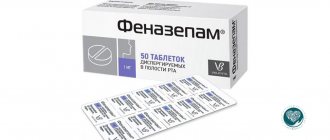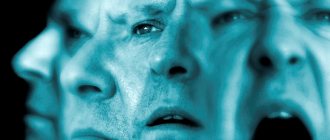Why does the psyche become attached to the use of medicine?
The attachment of the psyche to something or someone is always associated with the formation of a conditioned reflex, a connection between the object of pathological attachment and receiving pleasure from it. Drugs in this sense are no exception, including pharmaceutical ones.
The development of psychological dependence is a serious problem. Addictive behavior, a kind of escape from reality with the help of pathological attachments, can relate not only to chemical addictions, but also to gambling addiction or shopaholism.
This is how the psyche gets rid of the painful state of dissatisfaction, lack of happiness, and loneliness. Under the influence of a drug, a person has at least some opportunity to gain joy, relax or cheer up. It's no wonder that there are so many addicted people among us. We all strive for happiness and bright impressions, but we rarely know how to live in such a way that they really become our companions. This is how drugs appear in life, use becomes regular, because they help you switch from negative to positive quickly and easily. But very soon the addict begins to have problems with use.
Formation of physical dependence
A drug that enters the body regularly takes part in its biochemical processes. The psychoactive drug gradually begins to play the role of compounds that the body itself must produce, and dependence on it arises. Since these substances enter cells from the outside, the body's systems are reconfigured and stop producing them on their own.
And the longer the period of addiction, the more the biochemical processes of the addict change. If the next dose of a psychoactive substance does not enter the body, and the remnants of the previous dose are already excreted in the urine and sweat, then the patient experiences an acute deficiency in the drug that has already become “necessary”. This is how a state of drug withdrawal occurs.
What are the consequences of using high doses of the drug?
When taking high doses, the withdrawal of Phenazepam slows down. A condition develops that resembles alcohol intoxication. The patient becomes active, mobile, relaxed. He feels happy and invincible.
At the same time, he begins to perceive what is happening around him worse and behaves inappropriately. He has difficulty concentrating, focusing, and remembering new information. The gait becomes unsteady. The pupils are enlarged. The eye's reaction to light slows down. Muscle tone, especially in the legs, decreases sharply.
As soon as Phenazepam stops working, the addict feels lethargic and weak and goes to bed. His appetite disappears for a while. Normal physical condition is restored in about a day.
Withdrawal syndrome in drug addiction
It is the withdrawal syndrome that becomes a powerful factor provoking further use of the drug. And in this sense, there is absolutely no difference from what physical dependence developed: from a prohibited illegal drug or a legal pharmaceutical drug, for example, phenazepam.
When reducing the dosage or stopping use, the addict will feel a number of painful symptoms relating to his physical and psychological well-being. All organs and systems of the patient’s body have already been restructured to work with the participation of the drug, and without it everything is disrupted, dysfunction, pain, psychological discomfort and disorders arise.
Consequences of taking Phenazepam: effect on the body
When taking large doses of the drug, Phenazepam changes a person’s consciousness, destroying his brain and nervous system and leading to serious mental disorders.
All internal organs of the patient are exposed to intoxication. Exceeding the dose leads to depletion of all systems, severe forms of poisoning and even death. Libido and potency decrease. When the drug is discontinued, psychological withdrawal, convulsions, insomnia, nausea and constant panic attacks occur. Such patients often experience suicidal thoughts.
Pharmacy drugs
It has happened more than once that medications created to treat various diseases turned out to be narcotic substances and caused severe addiction in people. This was the case with methadone, amphetamines and many other psychoactive drugs. Now they have become drugs and are prohibited.
But there are also medications that do not contain narcotic components, but still cause addiction. Their effects on the body at non-medical dosages are similar to those of drugs. These drugs and the conditions for their sale in pharmacies cause constant controversy; some of them are dispensed only with a doctor’s prescription, while some can be bought without a prescription. Such drugs are called pharmaceutical drugs.
Phenazepam
Phenazepam was created in the USSR in the seventies of the last century. This is a tranquilizer, which at the dawn of its use found wide use in military surgery. Phenazepam has a hypnotic effect and successfully fights seizures.
For medical purposes, phenazepam tablets are prescribed for insomnia, epilepsy, as well as for depressive and anxiety conditions. Phenazepam also has its place in narcology, where it is used to relieve alcohol withdrawal. In this case, it is prescribed in a dosage of one tablet per day or two.
Analogs
All benzodiazepines are CNS depressants, causing disturbances in psychophysical status to one degree or another. With long-term use they cause dependence. The pharmacological group includes the following substances:
- triazolam;
- clonazepam;
- diazepam;
- lorazepam;
- nitrazepam;
- gidazepam;
- flunitrazepam.
In terms of clinical action, barbiturates are most similar to benzodiazepines. They have a greater degree of hypnotic and sedative properties. Long-term use leads to addiction and multiple organ failure, including brain damage.
The most dangerous CNS depressants are opioids, such as heroin. These substances are exclusively illegal. Chronic intoxication is accompanied by severe social degradation, disability, and mental disorders. The risk of contracting viral hepatitis and HIV increases.
Just as with the abuse of barbiturates and other sleeping pills, a unique personality defect is formed, reminiscent of an organic one with a change in the entire structure of the personality. Patients experience intellectual-mnestic disorders. The face becomes mask-like, facial expressions are poor. Speech and all movements are slowed down. Lethargy increases. Callousness, rudeness, selfishness, and cruelty towards loved ones are observed. Moral and ethical standards of behavior are violated. Performance drops sharply. Patients become unfit for work involving mental and physical stress.
Tiganov A.S. (ed.) ‹‹Exogenous mental disorders›› Substance abuse caused by abuse of tranquilizers
Recreational (non-medical) use of phenazepam
But drug addicts have a different goal when using phenazepam. They strive to achieve pleasant relaxation and euphoria. However, in this case, no one is protected from manifestations of aggression; loss of coordination of movement may occur, because phenazepam in excessive dosages acts differently, and the body’s reaction is unpredictable.
Drug addicts can take up to several dozen phenazepam tablets at a time. In this state, a person does not care about anything, nothing hurts, he has no feelings. In a deranged state, an addict can commit any action and will not remember about it.
Even a slight excess of the dosage prescribed by a specialist can lead to a narcotic effect and rapid addiction to phenazepam. In this case, the patient will have to become familiar with what tranquilizer withdrawal syndrome is.
Safety of Phenazepam
Phenazepam is a relatively safe drug. But this statement is only true if the patient takes it in accordance with the dosage and in cases prescribed by the doctor. Some drug addicts use the medicine together with the drug to enhance the effect. This is a very dangerous combination that can lead to death. There are also known fatal cases after using Phenazepam and other psychostimulants.
The half-life of Phenazepam from the body does not exceed 10 hours. However, in some patients, especially those with liver disease, this time almost doubles. To safely take Phenazepam, you should wait 2 to 3 days after your last drink.
Alcohol dependence increases the risk of developing dependence on this tranquilizer. Therefore, in case of alcoholism, the drug is prescribed with great caution and for a short time. It is ideal if the patient takes Phenazepam to relieve withdrawal symptoms. Subsequently, the patient is prescribed sedatives that have a milder effect.
Alcoholic drinks are strictly prohibited during treatment with Phenazepam. Only a doctor can tell you when you can drink alcohol after undergoing treatment.
How long does withdrawal from phenazepam last?
Withdrawal occurs when the usual dosage is reduced or the medication is not taken at all. Withdrawal from phenazepam has the following painful symptoms:
- Anxiety.
- Irritation.
- Insomnia.
- Painful hearing loss.
- Headache.
- Lack of appetite.
- Skin itching.
- Chills.
- General weakness.
- A sore throat.
- Feeling of muscle pain.
As you can see, some of the symptoms have something in common with the symptoms of the flu or a cold. Withdrawal from phenazepam lasts about one week, which is how long it takes the drug to leave the body. In case of long-term addiction and severe intoxication, the medicine can leave the body naturally for up to a month. All this time, symptoms of withdrawal from phenazepam may appear.
How long does phenazepam stay in the body?
How long does it take to remove Phenazepam? All figures are approximate, since each case is individual. After taking the tablets, remnants of the drug’s breakdown products may remain in the blood and urine for a long time. Moreover, these residual components still react with alcohol or other drugs.
How much is excreted from urine
The period of excretion from urine ranges from 3 to 8 days with regular use. If we are talking about a one-time use, then the average time ranges from a day to 3. Drinking plenty of fluids or taking succinic acid will not help speed up the elimination of Phenazepam from the urine.
How much is removed from the blood
The medication remains in the blood from 3 to 5 days. Every day, the concentration is halved if use has been stopped. After taking Phenazepam, you should not drive vehicles or perform responsible, serious work (for example, surgical operations) for at least three days.
Call a doctor to detoxify your body
- Anonymously
- For free
- Around the clock
Leave a request for a free consultation with a specialist
We will contact you as soon as possible!
By clicking on the button, you consent to the processing of your personal data
How to relieve withdrawal from phenazepam?
You can relieve withdrawal symptoms from phenazepam through detoxification. The process involves placing intravenous drips based on saline solution. They quickly cleanse the body and relieve painful withdrawal symptoms.
Detoxification from phenazepam is carried out in a drug treatment clinic, which allows the narcologist to use hardware detox methods and, if necessary, resort to intensive therapy measures. In a specialized clinic, the patient also communicates with a psychologist and receives motivation for further addiction treatment. Here, neither ordinary nor pharmaceutical drugs will be available to him.
How does phenazepam affect the psyche?
This drug affects the entire central nervous system. Due to its psychotropic effects, Phenazepam also has an effect on the psyche. That is why, when using the drug for a convulsive condition, the effect occurs in such a way that not only external indicators are removed, but also internal ones, that is, the cause itself. And for insomnia, the drug acts to inhibit the central nervous system and brain cells. Thus, brain activity, emotional stress and reaction are reduced. That is why the drug is STRICTLY PROHIBITED to use while driving.
Considering that each body perceives it differently, the drug can quickly become addictive. It is for this reason that at the initial stage it is not prescribed for more than 2 weeks.
The dangers of pharmaceutical drugs
The peculiarity of pharmaceutical drugs is that people often cannot understand: a medicine, if used in non-medical doses, becomes a poison. To this day, many of those who are “involved” in pharmaceutical drugs retain the illusion that approved drugs cannot harm the body, but this is completely inconsistent with reality.
All medications must be taken strictly as prescribed by the doctor, according to the instructions. But even so, some of them can be addictive in sensitive people. And this is especially true for sleeping pills, tranquilizers, painkillers, that is, those drugs that affect the subtle processes of the psyche.
Because these drugs are legal, they are easy to buy and usually cost less than drugs. This is another reason for the massive spread of pharmacy drug addiction.
Action of Phenozepam
The effect of Phenazepam when consumed in large quantities is a decrease in arousal, relaxation, euphoria, relief of tension and anxiety, and drowsiness. The sedative effect of Phenazepam is dangerous. It lies in the fact that when using the drug in large quantities, a person may lose consciousness and, if he is not helped, death will occur.
This is due to the fact that under the influence of Phenazepam, muscles relax, blood pressure decreases, and body temperature drops. A person is in a borderline state between sleep and wakefulness. When the effect of the drug wears off, the person experiences depression, depression, and loss of strength.
Treatment for pharmaceutical drugs in
Our center provides all types of drug treatment services from emergency assistance to long-term complex treatment. We also help those people who have become addicted to pharmaceutical drugs. You can call us and have a narcologist come to your home in case of an overdose or the need to relieve withdrawal, we also help in transporting the patient to a drug treatment clinic.
To cure addiction and achieve long-term remission, the patient needs a full course of treatment. Emergency measures and coding alone will not help here. In you can undergo the entire course of treatment for drug addiction: detoxification, rehabilitation, resocialization. We will select for you exactly the clinic and rehabilitation center that will have all the conditions necessary for treatment and a combination of cost and quality of services that will completely satisfy you.
Please note that every day of delay in case of drug addiction produces new irreversible changes in the patient’s health, and the addiction becomes more and more intense. It is early access to specialists that makes it possible to complete the course of treatment faster and at the lowest cost. Therefore, consult a doctor as soon as you notice the first symptoms of addiction to phenazepam or any other drug.
We sincerely advise you to call our call center right now and find out everything about addiction treatment and its approximate cost. Today, addiction treatment is much more accessible than you might think. Call our consultant and see for yourself. You can also fill out the feedback form located on the page, and we will recruit you.
Is it possible to get rid of Phenazepam addiction at home?
There is no doubt that most patients who are dependent on chemicals prefer to be treated at home. RC Svoboda offers a service of calling a doctor to your home. If in an emergency the assistance of a doctor is needed, a specialist will immediately respond to the call. It is possible to help a patient at home if his health condition allows for a detoxification course without possible complications. But doctors strongly recommend hospitalization in a clinic if the patient’s condition is serious, he is elderly, and combines taking Phenazepam with drugs and alcohol.
Treatment of drug addiction in a clinical setting is the best way out of the situation. The Svoboda center has the necessary equipment for a full examination of the patient, a detoxification course, and further rehabilitation.











